Ocorre nesta semana a 6ª Sessão de Negociação do Tratado em Empresas e Direitos Humanos
No dia 5 de novembro completamos 5 anos do rompimento da barragem em Mariana – MG, pertencente a empresas transnacionais. Mesmo após tantos anos, não houve ainda a reparação total dos danos ambientais e aos afetados e afetadas. Somados a esse caso, temos inúmeros outros registrados no Brasil.
Nesse cenário, é importante que a sociedade busque normas internacionais que possam reverter esse sistema de impunidade corporativa que se perpetua em todo o mundo. Para tanto, é necessário estarmos atentos ao Processo de Negociação de um Tratado sobre Empresas e Direitos Humanos que está em discussão na ONU, em Genebra, que terá sua 6ª Sessão iniciou no dia 26 de outubro, terminando no dia 30. O Homa está fazendo a cobertura da Sessão pelo Twitter @homacdhe, acompanhe a #HomaNaONU. Siga-nos para não perder os principais pontos!
O processo entrará numa fase crucial, que é a discussão do texto de cada artigo do que poderá ser o futuro Tratado Internacional sobre o tema, com chances de revolucionar como as violações de direitos humanos pelas transnacionais são tratadas pelos Estados e pelo Poder Judiciário.
O objetivo desse instrumento jurídico é regular no âmbito internacional a atividade das empresas transnacionais, de modo a criar normas vinculantes para que elas respeitem os direitos humanos, e, caso os violem, sejam devidamente responsabilizadas e reparem efetivamente todos os danos.
Esse processo é comandado pelo “Grupo de Trabalho Intergovernamental Aberto (OEIGWG) sobre Empresas Transnacionais (TNCs) e outros negócios em relação aos direitos humanos”, presidido pelo Equador, tendo começado em 2014, após muita pressão dos países em desenvolvimento, principais vítimas das atividades violadoras das transnacionais. De lá para cá, já houve muitas tentativas de alguns Estados, principalmente os países desenvolvidos, para barrarem o processo ou enfraquecê-lo do ponto de vista de proteção dos direitos humanos. Nesse cenário, é importante frisar a tentativa da delegação brasileira de impedir que a Sociedade Civil participasse da sessão no ano passado, em uma atitude totalmente anti democrática.
A Sociedade Civil internacional, encabeçada pela Campanha Global (stopcorporateimpunity.org), ao qual integramos como membros e assessores jurídicos, tem pressionado as delegações dos países, publicando análises dos rascunhos do Tratado, realizando falas durante as sessões e organizando eventos sobre o tema, buscando que a sociedade fique sabendo da discussão e envolva-se ativamente, bem como para que o instrumento possa ter de fato uma perspectiva de primazia dos Direitos Humanos.
A Campanha Global divulgou a sua análise completa do draft 2, contendo novas propostas para o texto do Tratado. Leia em:
Assista a fala do Homa pela Campanha Global durante a 6ª Sessão, 29 de outubro de 2020:
COLETIVA DE IMPRENSA
No dia 27 de outubro ocorrereu a “Coletiva de Imprensa Online: Tratado vinculante das Nações Unidas sobre Empresas Transnacionais e Direitos Humanos: Oportunidade histórica de responsabilizar as transnacionais”, às 09h no Brasil (13h em Genebra). A coletiva de imprensa, na qual atores políticos e da sociedade civil de alto nível estarão presentes, será uma oportunidade para obter insights sobre este processo histórico e os desenvolvimentos esperados.
A coletiva incluiu tempo para perguntas e teve tradução simultânea para inglês, francês e espanhol, sendo organizada pela Campanha Global para recuperar a soberania dos povos, desmantelar o poder corporativo e parar a impunidade (Campanha Global) e a Rede Interparlamentaria Global em apoio ao Tratado Vinculante da ONU (GIN).
Compuseram a Mesa da coletiva:
Charles Santiago | Membro do Parlamento malaio; Presidente dos Parlamentares da ASEAN para os Direitos Humanos – Malásia
Leïla Chaibi | Membro do Parlamento Europeu, França insoumise (GUE/NGL)
Dra. Manoela Carneiro Roland | Coordenadora do Homa – Centro de Direitos Humanos e Empresas e Professora da Universidade Federal de Juiz de Fora – Brasil
Keamogetswe Seipat | Coordenador da Campanha Sul-Africana para Desmantelar o Poder Corporativo; Centro alternativo de Informação e Desenvolvimento (AIDC) – África do Sul
Confira o Press Release da Coletiva:
HISTORIC PROCESS CONTINUES AT THE UN: STATES RESUME SUBSTANTIVE NEGOTIATIONS ON THE TEXT FOR A BINDING TREATY ON TRANSNATIONAL CORPORATIONS WITH RESPECT TO HUMAN RIGHTS
28 OCTOBER 2020, GENEVA
Amidst the challenges of the Covid-19 pandemic, the United Nations (UN) Open Ended Inter-governmental Working Group (OEIGWG) enters its sixth round of negotiations on a treaty on “transnational corporations and other business enterprises with respect to human rights,”1 from 26 -30 October. UN member states will negotiate a second revised draft of this groundbreaking treaty, which aims to elaborate an international legally binding instrument to regulate, in international human rights law, the activities of transnational corporations.
Interest in the process continues to grow as evidenced by the significant presence of UN member state delegates taking part in negotiations.
The Global Interparliamentarian Network (GIN) has issued a statement in support of the UN Binding Treaty urging “states to actively engage in this UN process and to work towards an effective and legally binding instrument, to ensure that people´s dignity enshrined by universal political, economic, social and cultural rights, is prioritised and guaranteed worldwide over private profits.”2
Mayors and City Council Members of cities including Barcelona, Strasbourg and, Paris have issued a call to local authorities around the world to support the UN Binding Treaty on Transnational Corporations and Human Rights.3
The continued presence each year since 2015 – the start of this process – of hundreds of representatives from affected communities, civil society organisations, trade unions and social movements makes it one of the most strongly supported in the story of the OEIGWG. This year, however, due to COVID19 restrictions, physical presence in Geneva is limited, although remote participation has been enabled through various online platforms. In this context, the Global Campaign to Reclaim Peoples Sovereignty, Dismantle Corporate Power and Stop Impunity (Global Campaign)4 together with the GIN hosted a virtual Press Conference with high level political and civil society actors.5
Leïla Chaibi, Member of the European Parliament, France insoumise (GUE/NGL) remarked:“Today there is no Binding International Treaty that protects people, but there are treaties that protect the investments of large corporations. Thanks to initiatives such as the Toxic Tour, I was able to see how these companies destroy health and communities in Mexico. The EU has had no problem signing free trade agreements with third countries and this is deeply unfair. Along with many of my deputies, we continue to ask that we cannot put ourselves in the sidelines in the face of these human rights violations by transnational corporations.”
Charles Santiago.Member of the Malaysian Parliament. Chairperson of ASEAN Parliamentarians for Human Rights stated:“At present, 43 million people have been infected by the Corona virus and more than one million have died. It is a catastrophe. Developing a Covid-19 vaccine is critical and has to be a global public good. Prices and profits need to be regulated. Intellectual Property Rights (IPR) provisions in the Trade-Related Aspects of Intellectual Property Rights (TRIPS) agreement need to be suspended to allow patent production of generic and bio similar products.
Transnational corporations (TNCs) and rich countries are refusing to suspend IPR provisions because, they claim, it would undermine patent protection. A global mechanism must be developed to regulate big pharmaceuticals on prices, profits and IPR. Transnational corporations’ ‘business as usual approach’ which prioritises profit during a global pandemic is not politically sustainable. The UN Binding Treaty is the best place to reset and enhance accountability of TNCs.”
Dr. Manoela Carneiro Roland. Homa’s Coordinator (Human Rights and Business Center) Prof Federal University of Juiz de Fora, Brazil stated:“We must regulate transnational corporations. This implies establishing direct obligations for them. Transnational companies already have rights established in the 3,000 plus signed investment agreements. We need to transform the paradigm of due diligence because it is a framework that erroneously leaves the task of self-monitoring to companies. We must establish effective control mechanisms, such as an International Court that has competence to judge transnational companies.”
Keamogetswe Seipato.Coordinator of the Southern African Campaign to Dismantle Corporate Power. Alternative Information & Development Center (AIDC), South Africa. claimed:“We have to reduce or limit the power of companies. The African continent is a breeding ground for human rights violations. The primacy of human rights must be respected. It is a question of underlining the need for companies to be accountable because they cannot come to our countries to expand and neglect the main Human Rights Conventions. We must remember that the UN Binding Treaty must be a mechanism to help communities access redress for human rights violations – one that provides both the assistance and support affected people need.”
NOTE TO EDITORS
For further information or to arrange interviews you can contact:
- Sol Trumbo Vila, Email: soltrumbovila@tni.org
- Mónica Vargas, Email: m.vargas@tni.org
Press Release issued by the Global Campaign to Reclaim Peoples Sovereignty, Dismantle Corporate Power and Stop Impunity. A network of over 250 social movements, civil society organisations (CSOs), trade unions and communities affected by the activities of Transnational Corporations, representing 260 million people globally. https://www.stopcorporateimpunity.org/
(1) This mandate is a result of resolution 26/9 adopted by the Human Rights Council in 2014. Official page: https://www.ohchr.org/en/hrbodies/hrc/wgtranscorp/pages/igwgontnc.aspx
(2) Global Interparliamentarian Network in support of the UN Binding Treaty is formed by more than 300 members of parliaments from all over the world. https://bindingtreaty.org
(3) https://bindingtreaty.org/local-authorities-in-support-to-the-un-binding-treaty/
(4) The Global Campaign to Reclaim Peoples Sovereignty, Dismantle Corporate Power and Stop Impunity (Global Campaign) – a network of over 250 social movements, civil society organisations (CSOs), trade unions and communities affected by the activities of transnational corporations (TNCs), representing 260 million people globally. For this sixth session it has issued its position paper on the second revised draft. https://www.stopcorporateimpunity.org/wp-content/uploads/2020/10/Position-paper-Global-Campaign_2nd-revised-draft-TNCs_FINAL-2.pdf
(5) Full recording of the press conference: https://www.youtube.com/watch?v=PABFuhwbwIg&feature=youtu.be
Also available in: Spanish
Confira o statement final da Campanha Global:
6th session of the OEIGWG
Joint-statement: CETIM, TNI, FOEI, CAI, AAJ, FIAN, ABIA (on behalf of the Global Campaign)
Final statementThank you Mr.Chair,
My name is Josua Mata and I speak on behalf of TNI, FOEI, CAI, CETIM, AAJ, FIAN, ABIA, as members of the Global Campaign.
The Global Campaign – a global network representing social movements and organizations of affected communities, workers, peasants, women, and indigenous groups, as well as non-government organizations and campaign groups – indicated in a statement in early September, that given the global COVID-19 pandemic, there aren’t suitable conditions for a negotiation Session. For that reason, our proposal was to transform the Session into a shorter consultation, but that suggestion was not heeded.
Unfortunately, the various challenges that we experienced and witnessed these past days proved that our original assessment was correct. The unprecedented conditions demanded innovative and new methodologies to achieve an efficient, representative and participatory process. The difficulties that everyone encountered in this 6th Session resulted in a less than ideal process. By comparison with 2019, when more than 90 State delegations participated, this year there was an abundance of statements but no possibility for dialogue or negotiation.
In line with civil society’s call for this process to be an inter-governmental negotiation, we underscore that it is time to ensure this negotiation become a States-driven process, with ample space for civil society participation according to ECOSOC rules. This is the only way to safeguard its democratic character. The current process leaves both civil society and States in the dark regarding how inputs to the negotiation text have been included or excluded. We believe that this is not the way to move towards a substantive 3rd draft.
In that light, we commend the decision to have a compiled text and matrices comparing the original 2nd revised draft text with all of the comments and proposals from States and civil society. We would urge States to contribute to these matrices in a timely manner to ensure we have a strong basis for informing the third draft. Furthermore, we would request that the Secretariat communicate and make this opportunity broadly available to civil society so as to provide States with a full record of the inputs. This base document will be essential to clarify the degree of agreement and disagreement around each article. In addition, we ask the Chair to release the new draft in a timely manner, at least 4 months before the start of the next session, in order to give States and civil society organizations the time to analyze it and undertake the necessary consultations.
The Covid-19 pandemic has impacted all aspects of these negotiations and IGWG procedures. Therefore, the IGWG methodology for the annual face-to-face session should also be adapted to the new conditions. Given these changed conditions, we believe that it is essential to implement an inter-sessional process to advance agreements and textual revisions.
Last but not least, in terms of the content of the future treaty, we would like to again emphasize – as the majority of States have – the urgent need to respect the mandate of the OEIGWG established by Resolution 26/9. The purpose of the mandate is to regulate the activities of TNCs with regards international human rights law. That is very clear and all parties must bear that in mind.
In the context of major difficulties and challenges, the Global Campaign reaffirms its faith in the process. Despite all the challenges we face, we have shown – through our commitment and numerous participation – that we remain fully convinced that this LBI is needed to bring justice to affected people and to put an end to the impunity of TNCs. The process is at a critical stage and with many threats looming on the horizon. Therefore, we provide our proposals and opinions to restore the vitality of this historic process and renew the commitment of delegations and civil society alike to achieving a successful, long-lasting treaty.
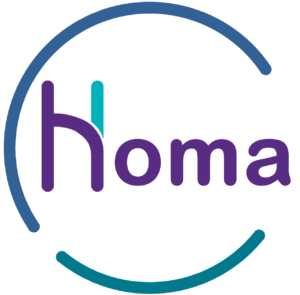

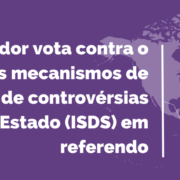
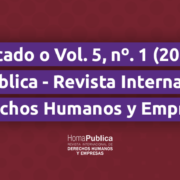
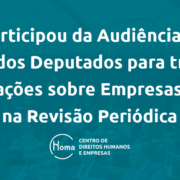

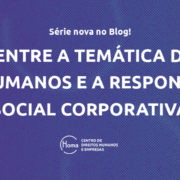

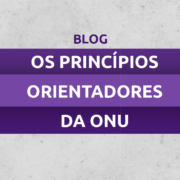
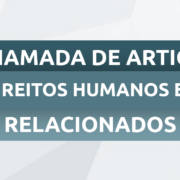


Deixe uma resposta
Quer participar da discussão?Fique a vontade para contribuir!